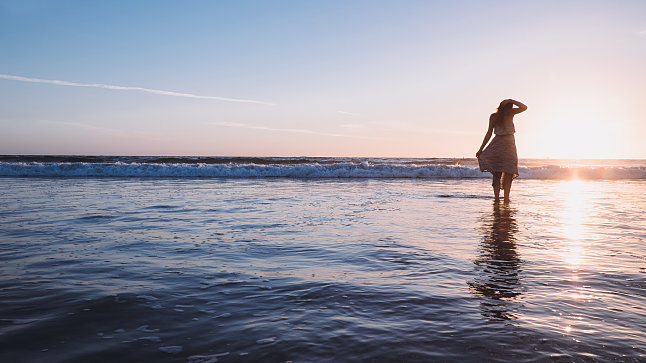Pain In Paradise

When most people hear the word “Hawaii,” they picture beautiful beaches, tropical lands, amazing sunsets, and hula dances at a luau. Rarely will they think of beaches filled with tent cities housing thousands of homeless people, a high rate of alcohol and drug abuse, or children being neglected in housing projects. There truly is pain in paradise.
I led a team of twelve people from the Baptist Collegiate Ministry at Southern Arkansas University to experience this pain first hand when we spent ten days ministering in Oahu this past May. It was difficult telling people that we were going on a mission trip to Hawaii because most people’s perception of Hawaii is that it is an Island of paradise. It is still difficult in telling the story because of the sadness that we discovered while there. Empty churches, church planters struggling financially while trying to reach people, and disinterested people dot the landscape of Oahu. Travel past the tourist beaches of Waikiki and you will still find beautiful beaches, but they are often populated with tents of the homeless. On the opposite end of the island is the town of Waianae, which is characterized by crime, drugs, alcohol and a discriminated people called the Chuuks.
As we ministered to the children of Waianae and the homeless on the beaches, we often felt as if we had travelled to another country rather than to another state. It was a totally different culture, and at times there was even a language barrier that had to be overcome. But the need was the same; the people were in need of a relationship with Jesus Christ. We were told by several of the church planters that the number of unchurched in Oahu ranges anywhere from 94 – 99%; there is definite lostness in paradise.
Our SAU mission team was able to help one of NAMB’s church planters, Aaron Davis, by visiting many beaches and ministering to the homeless. It was frightening at times going up to a tent and “knocking,” not knowing what was to be encountered. Meth use is high among the homeless so there was the fear of finding a person who was strung out on drugs. What we mostly found were people who were hurting, longing for someone to care, for someone to talk to. At one point we travelled to a store, bought bread and lunchmeat, and made dry sandwiches to give to the homeless beach dwellers. They were very grateful and often could not wait to eat their sandwiches, which for one man was a better alternative to cooking a dead fish he had found on the beach. One man who lived in a tent told Aaron, “You don’t always have to bring food; we would just love to have someone to talk to.” There is much loneliness in paradise.
Another opportunity we had was to minister to the children at the government housing in Waianae. These children are often the children of parents who are addicted to alcohol and or drugs and are often neglected. Sex trafficking is actually a problem in Oahu, and sadly sometimes as a result of parents selling their own children to support their habits. The children the team worked with were absolutely precious and were so hungry for love and attention. One night later in the week I had to go back to the housing project. When I got out of the car, children began running up to me, hugging me, and asking where the group was. It was especially heart-wrenching when one of the young girls asked if I could be her daddy. There is hurt in paradise.
The people of Hawaii need to hear the Gospel message of Jesus Christ. There is a great need for mission teams to go and share and love on the Polynesian people. Although this state is very lost, there are possible signs that it was not always that way. One of the interesting things that we discovered was the meaning of aloha. We were told that aloha means more than just “hello” and “good-bye,” but it is a more intimate expression of love and affection. Aloha was also originally two words. The first, alo, means “to come face to face,” and the second, hameans “breath of life.” Upon hearing this, I could not help but think of the possible spiritual connection. The people of Hawaii need to come face to face with God and receive the breath of life that comes from His Spirit. Yes, there is pain in paradise, but healing and comfort are available in Jesus and we were blessed to be able to share that hope with the people of Oahu. Aloha.